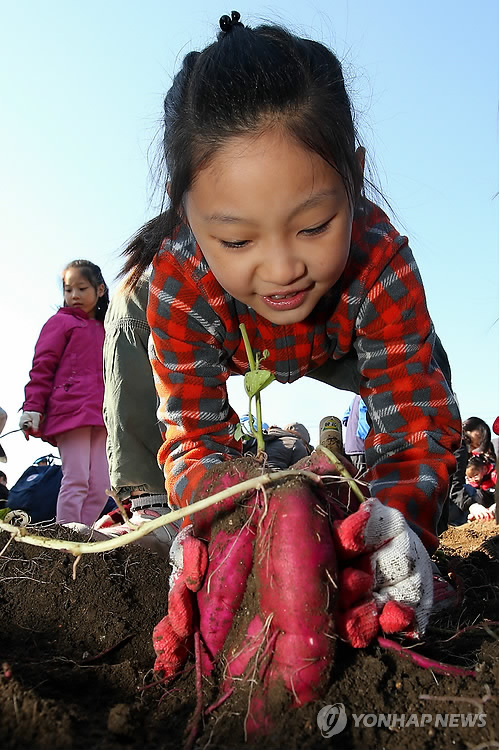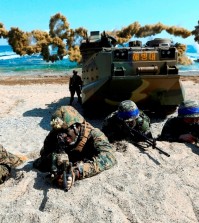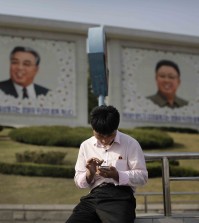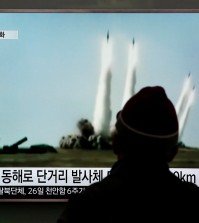- California Assembly OKs highest minimum wage in nation
- S. Korea unveils first graphic cigarette warnings
- US joins with South Korea, Japan in bid to deter North Korea
- LPGA golfer Chun In-gee finally back in action
- S. Korea won’t be top seed in final World Cup qualification round
- US men’s soccer misses 2nd straight Olympics
- US back on track in qualifying with 4-0 win over Guatemala
- High-intensity workout injuries spawn cottage industry
- CDC expands range of Zika mosquitoes into parts of Northeast
- Who knew? ‘The Walking Dead’ is helping families connect
S. Korea sends sweet potatoes to N. Korea for ‘nutritional’ aid
SEOUL (Yonhap) — South Korea approved the shipment of unprocessed sweet potatoes to North Korea last month by a civilian group here, an official said Monday, amid speculation that Seoul may be easing restrictions on humanitarian aid for the impoverished neighbor.
“The 20 tons of sweet potato aid at the end of last year were intended as nutritional assistance for babies and infants including those at an orphanage in the Sinuiju area,” the unification ministry’s spokesman Lim Byeong-cheol said at a press briefing.
It was the first time for the South’s Park Geun-hye administration to permit the shipment of unprocessed crops to the North.
The government had only allowed the provision of processed foods, such as powder types, which are more difficult to be diverted to the military due to a relatively short storage time.
The Park government has been apparently flexing its muscles to expand humanitarian assistance for the North, although its pace will depend on the communist regime’s attitude.
Expectations of inter-Korean talks are rising as the North’s leader Kim Jong-un, in his New Year’s speech, vowed every effort to improve Seoul-Pyongyang ties. He said the two Koreas can even hold talks at the highest level if conditions are met.
But the North has not responded yet to the South’s offer of ministerial talks within this month, according to the ministry official.
He cautioned media against attaching excessive meaning to the recent shipment of sweet potatoes, worth 52 million won (U$46,000), saying it is nothing more than routine nutritional assistance.
“It’s our government’s view that it’s not appropriate to regard it as crop assistance (similar to that by former liberal administrations),” he said.
The Kim Dae-jung and Roh Moo-hyun governments used to deliver massive amounts of rice and fertilizer to the North under the so-called sunshine policy of engaging Pyongyang.
In 2014, the South’s government earmarked 3 billion won from the inter-Korean cooperation fund to support local civilian agencies’ aid programs in North Korea.
“It’s true that the government is trying to expand humanitarian aid for North Korean residents in need, especially pregnant women, babies and children,” a government official said.

















